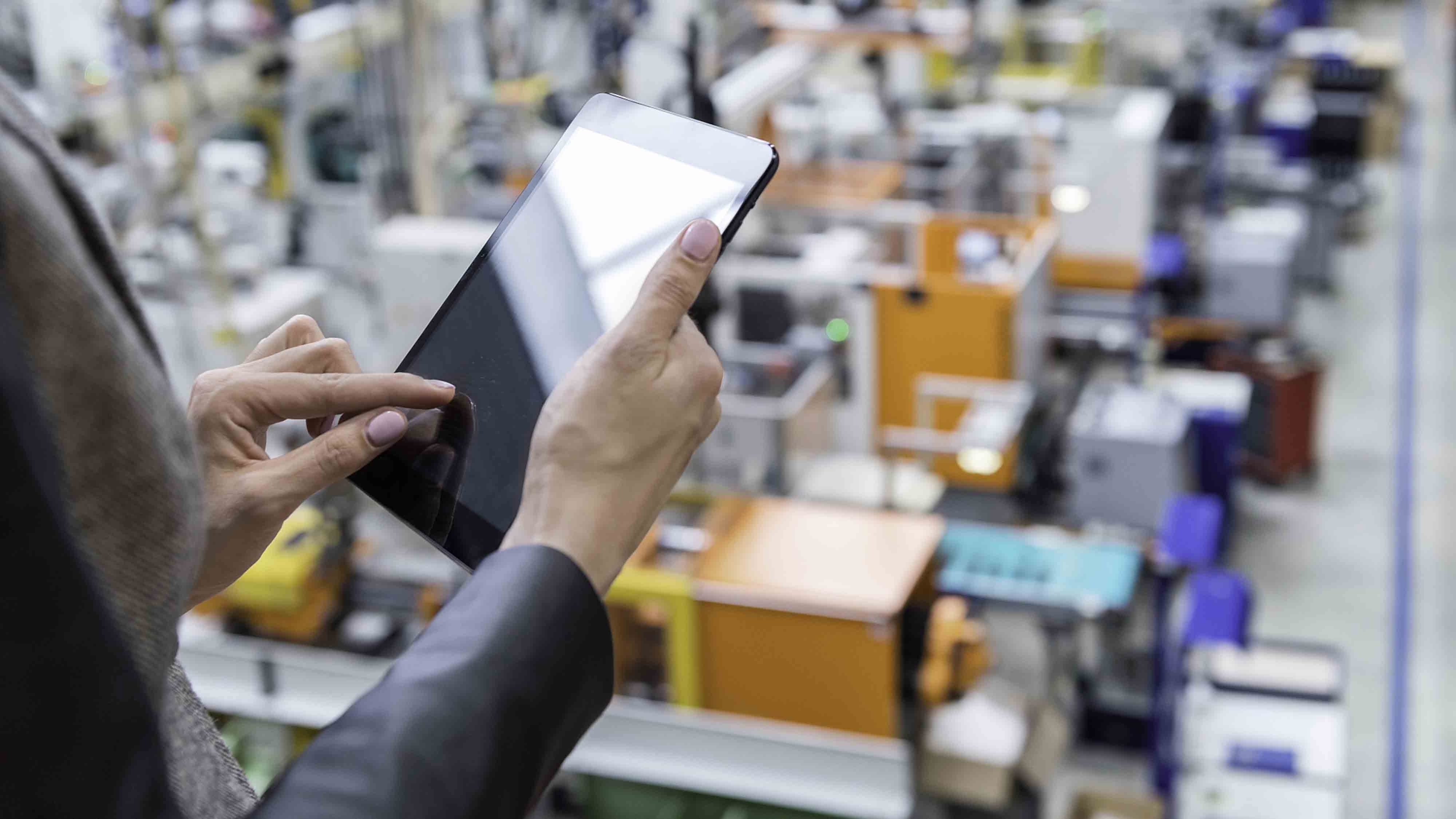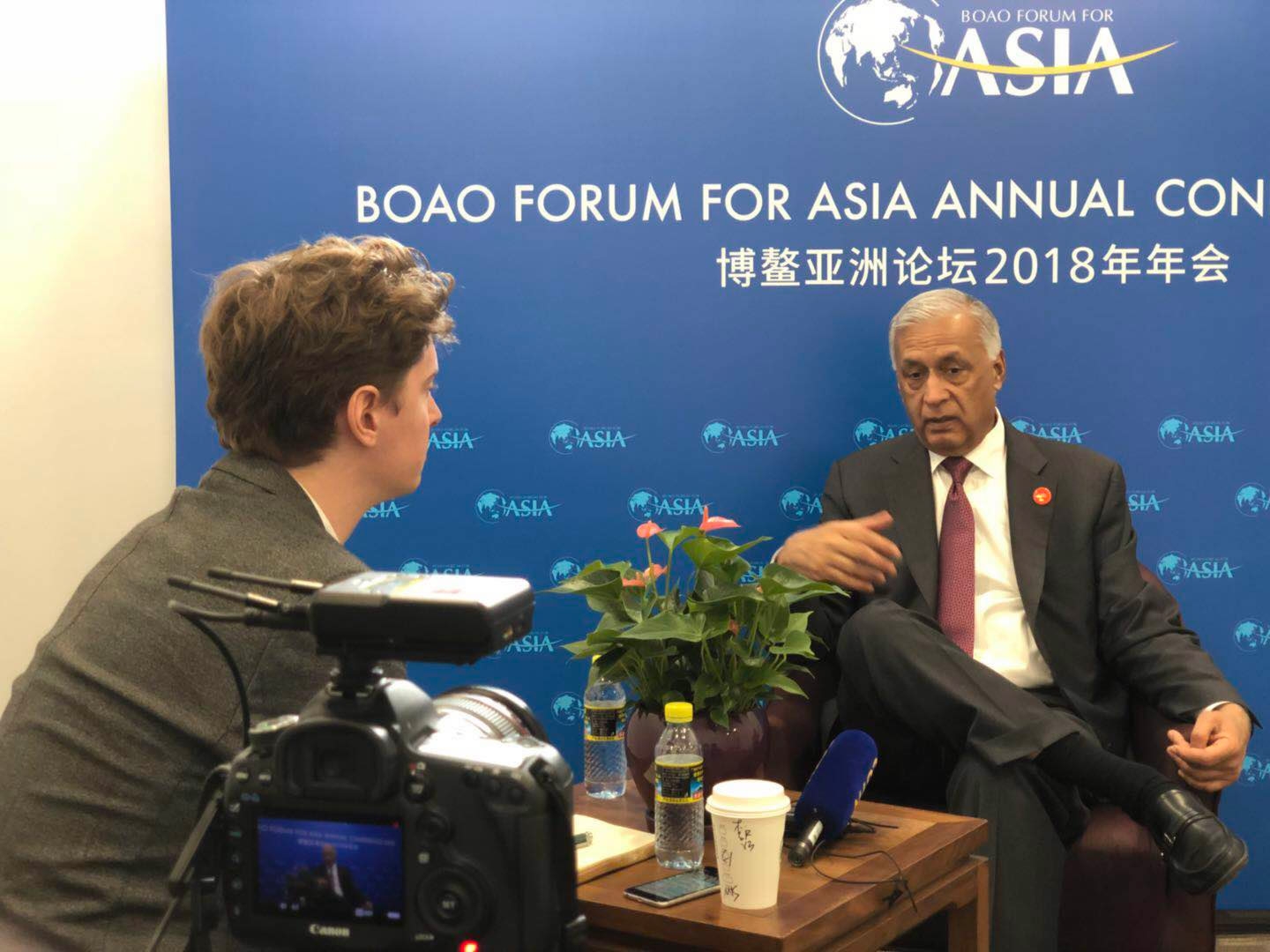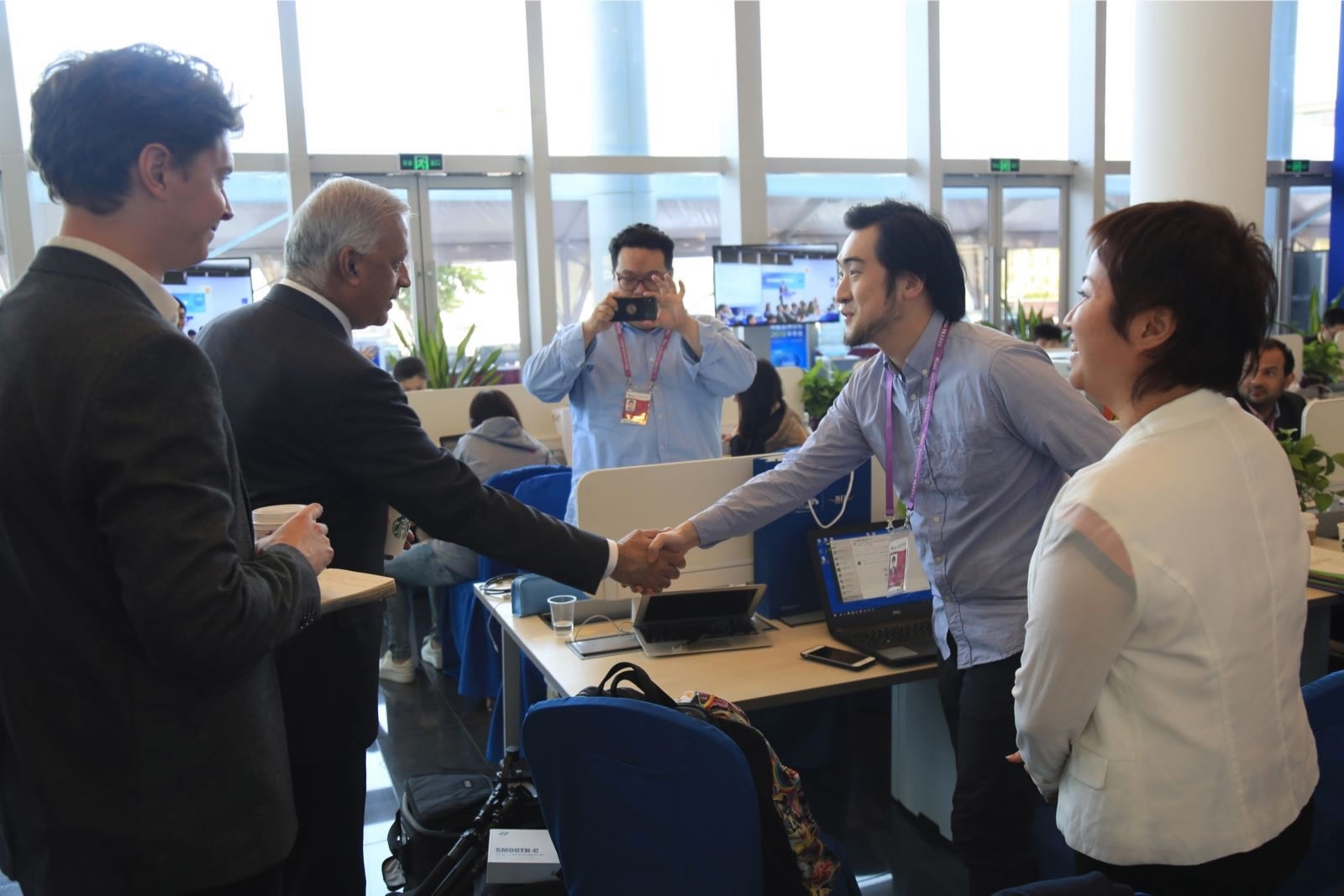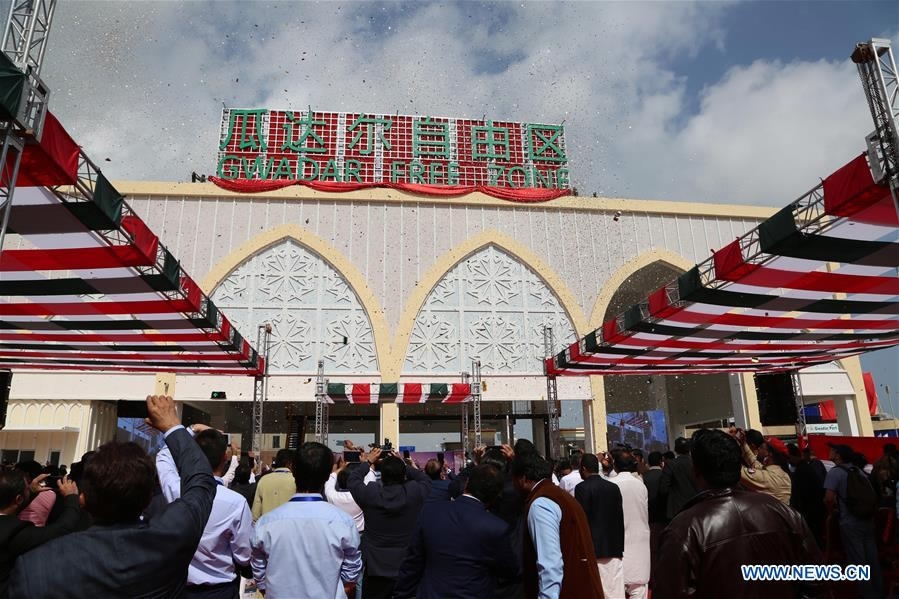
Business
13:28, 09-Apr-2018
Shaukat Aziz: Tariffs bring short-term pain but no long-term gain
By John Goodrich

Shaukat Aziz makes quite a first impression – he looks as you might imagine a man who once headed the government of the world’s sixth most populous nation would.
Upright, immaculately dressed and with the careful but purposeful walk of a man in control, the former prime minister of Pakistan turns heads as he floats through the lobby of the Boao Forum hotel.
Chatting with a smile as he makes his way to the media center, grabbing a coffee en route, the 69-year-old settles in to give his perspective on Boao Forum for Asia, China-Pakistan ties and, of course, trade friction between Beijing and Washington.

Former Pakistani Prime Minister Shaukat Aziz (R) talks to CGTN at the Boao Forum for Asia in Boao in south China's Hainan Province, April 8, 2018. /CGTN Photo
Former Pakistani Prime Minister Shaukat Aziz (R) talks to CGTN at the Boao Forum for Asia in Boao in south China's Hainan Province, April 8, 2018. /CGTN Photo
Aziz is a perfectly placed observer, having worked at the top level of the global finance industry for 30 years, as well as serving as both Pakistan's finance minister and prime minister.
With heavy tariffs threatened by the US, China has said it will take countermeasures. Aziz expressed faith in the leadership of both the US and China to resolve tensions, stressing that commonalities are too strong for a "snapping" in relations to occur.
In general, the Boao Forum board member added, tariffs aren't a particularly effective way of protecting an economy in the modern world.
"My own view is that tariffs in today's world, as a means of protection, are gradually dying. You can create short-term pain, but not long-term gain."
And ultimately, Aziz says, if tariffs are implemented on Chinese goods heading to the US, the American consumer not government would have the final verdict – they'll decide if they want to pay more for the product.
Engaging and thoughtful throughout, Aziz stressed the importance of connectivity to finding solutions, citing the Boao Forum as an example of people from different countries and backgrounds coming together to share ideas, clear up misunderstandings and debate issues that may still be to enter the public consciousness.
Boao is a forum that stands alone, Aziz said – there is nothing else quite like it, and its significance is only growing. In his role as a board member along other leading figures from around the world, he is living the interactivity that he believes is so important to progress.

Former Pakistani Prime Minister Shaukat Aziz (L2) in the Boao Forum media center in Boao in south China's Hainan Province, April 8, 2018. /CGTN Photo
Former Pakistani Prime Minister Shaukat Aziz (L2) in the Boao Forum media center in Boao in south China's Hainan Province, April 8, 2018. /CGTN Photo
"Net-net the Boao Forum is increasing in its clout and its influence. It is not competing with anybody. It is I think the only major Asian forum which has global reach."
So what is he expecting from President Xi Jinping's keynote speech on Tuesday, an address Chinese State Councilor and Foreign Minister Wang Yi suggested last week could include new policies on opening up?
"In terms of China and its major reform agenda, there is a lot of change that is happening, has happened. Look at China today against 10 years ago, look at China today and what it will be 10 years from now. We're talking about being in the midst of massive change – positive. If they execute it well it will have huge dividends, and I see no reason why they can't execute it very well.
"They have the human capital, they have the will to work hard, and they are always being sought after by other countries in the world."
Read more:
Aziz spoke positively of China-Pakistan infrastructure ties, strongly backing the close relations and saying the impact of the projects, several of which were given the green light while he was in office, were now being felt by ordinary Pakistanis.
"If you asked the average person on the streets of Pakistan, they would tell you that we consider China as one of our major friends. Why? China has stood by us in difficult times and is consistent in its relationship. Secondly China, with the Belt and Road, has really jumped the curve in terms of how to connect with countries and how to conduct its diplomacy."

January 29, 2018: The first phase of Gwadar Port's Free Zone in southwestern Pakistan is inaugurated as part of the China-Pakistan Economic Corridor. /Xinhua Photo
January 29, 2018: The first phase of Gwadar Port's Free Zone in southwestern Pakistan is inaugurated as part of the China-Pakistan Economic Corridor. /Xinhua Photo
As Pakistan's prime minister between 2004 and 2007, Aziz oversaw strong growth boosted by his deregulation policies and also built ties with China.
And he believes the success of the China-Pakistan relationship on infrastructure makes it all the more attractive for other countries to follow via the Belt and Road Initiative.
"If your infrastructure improves, your roads improve, your telecommunication system improves, your ports improve, your airports improve, and that brings in more Chinese capital, more infrastructure improvements, this is what the doctor ordered."
Aziz departs, unflappable after holding court for 40 minutes – and still carrying the coffee. As he walks through the media center he shakes hands and smiles – no longer in high office, but endlessly active on projects around the world and still showing the skills of a top politician.
2376km

SITEMAP
Copyright © 2018 CGTN. Beijing ICP prepared NO.16065310-3
Copyright © 2018 CGTN. Beijing ICP prepared NO.16065310-3